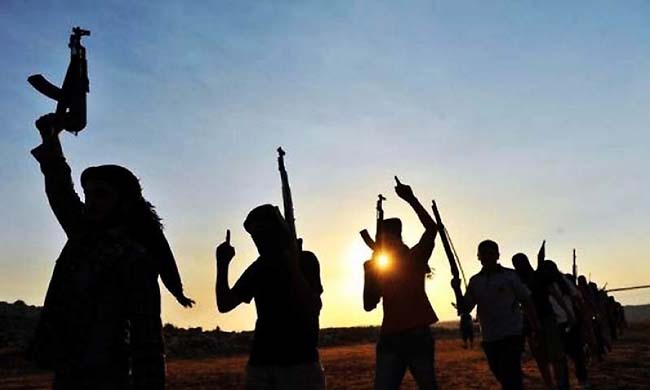A number of radical parties have resurfaced in Pakistan under new aliases after being banned by the government. Practicing upon fundamental ideologies and strict interpretation of religious texts, the parties seem to pose threat to Pakistan and neighboring countries through terrorist activities.
The parties are widely engaged in stoking sectarian violence within Pakistan and undermine the internal security on a large scale via orchestrating attacks against ethnic minorities. The radical parties challenge Pakistan government every once in a while as creating tension among the ethnic groups in different major cities. I remember vividly when the minority group fell victim to terrorist acts throughout Pakistan, while conducting their religious rituals.
It is said that many outlawed parties have re-emerged to continue their acts of terror. One of the organizations has reappeared is the Sipah-e-Sahaba Pakistan (SSP), which was first banned on January 22, 2002. It resurfaced as Millat-e-Islami before the government banned that iteration in November 2003. But it could not suppress the group who managed to reinvent itself as the Ahl-e-Sunnat Wal Jamaat (ASWJ). Although the ASWJ was banned on February 15, 2012, it has continued to flout that ban by staging sporadic activities in Pakistan without much fear of retribution from the state.
Similarly, the Hafiz Saeed-led Lashkar-e-Taiba (LeT) was banned in 2002. The group and Saeed were able to reinvent themselves under the banner of Jamaat-ud-Dawa (JuD) and expand their operations into a vast charity network as well. Despite being sanctioned by the United Nations, Pakistani government has only kept the group on ‘observation’ while the group’s chief Saeed continues to headline events in Pakistan delivering public speeches.
Jaish-e-Muhammad (JeM), accused of carrying out deadly attacks in India, was first banned on January 22, 2002. It did not take long for the group to resurface under the new name of Khuddam-ul-Islam. Pakistani government banned that group on November 15, 2003. However, the group has continued to operate in the shadows.
Tehreek-e-Jaafria Pakistan (TJP) is another banned organization which was first proscribed on January 22, 2002. It soon re-emerged with a new title, Islami Tehreek Pakistan. It was again banned on November 15, 2003.
It is believed that the re-emergence of the radical organizations will compound the security challenges in Pakistan to a great extent and put the rights and freedom of the public at stake. Pakistani citizens will lose their lives under racial, religious and ethnic backgrounds. Furthermore, the political instability will pave the grounds for easy infiltration of the self-styled Islamic State of Iraq and the Levant (ISIL) in Pakistan as some will be inclined to their radical ideology and pledge allegiance to Al-Baghdadi’s Caliphate.
So, it should be noted that it is not only the Taliban who stage terrorist activities but many other networks, as mentioned above, who are no less perilous than the Taliban militants. Furthermore, many madrasahs are the hotbed of terror and radicalism and members of warring parties are trained in the same places. Although some were discovered by Pakistani government, many others are believed to survive and produce terrorists – this fact is reported by Pakistani media every once in a while.
Afghanistan is not immune to the aforementioned parties either since the Taliban have constantly crossed the Afghan-Pak porous borders. The vulnerability of Afghanistan to militant factions is beyond doubt and this country bears the brunt of violence and terror in Asia. The head of radical organizations issue fatwa under religious terms not only against US-led international forces but also against Afghan national army. They are inculcated to carry out jihad in Afghanistan.
Following the attack outside a building of the National Directorate for Security in Kabul that killed more then 70 people and injured more than 350 others, the director of the US State Department’s Press Office, Elizabeth Trudeau, said, “We have consistently expressed our concerns at the highest level of the government of Pakistan about their continued tolerance for Afghan Taliban groups such as the Haqqani network operating from Pakistani soil.” She added that Pakistan had reiterated that it would not discriminate between terrorist groups “and we continue to call on them to live up to that commitment”. It is worth saying that the existence of militants in a country is tantamount to a double-edged sword which will harm the host and neighboring countries.
The heavy offensives in Afghanistan had led to frequent tension between Kabul and Islamabad and prompted Afghan President Muhammad Ashraf Ghani to talk with serious tone. Although Pakistan launched the Zarb-e-Azb operation against the Taliban militants, it could mitigate militancy neither in Pakistan nor in Afghanistan. Pakistani Chief of Army Staff Gen. Raheel Sharif on Friday met with Commander Resolute Support Mission in Afghanistan General John Nicholson and US Special Representative for Afghanistan and Pakistan Richard Olson and said that all efforts for durable peace in the region have to be synergised with shared commitment and responsibility in order to make them successful.
He said all stakeholders need to understand Pakistan’s challenges with regard to porous border, inter-tribal linkages and decades-old presence of over 3 million refugees.
He further added that “Blaming Pakistan for instability in Afghanistan is unfortunate,” he said.
He said Pakistan is committed to work for a long term peace process for Afghanistan under the four nation Quadrilateral Coordination Group framework, involving Afghanistan, China, Pakistan and the US.
Home » Opinion » Re-emergence of Banned Parties in Pakistan
Re-emergence of Banned Parties in Pakistan
| Hujjatullah Zia

